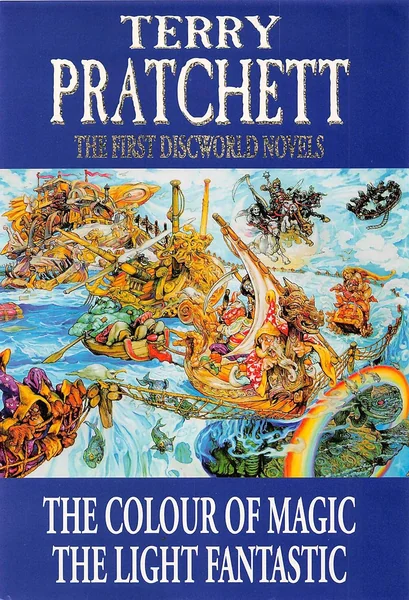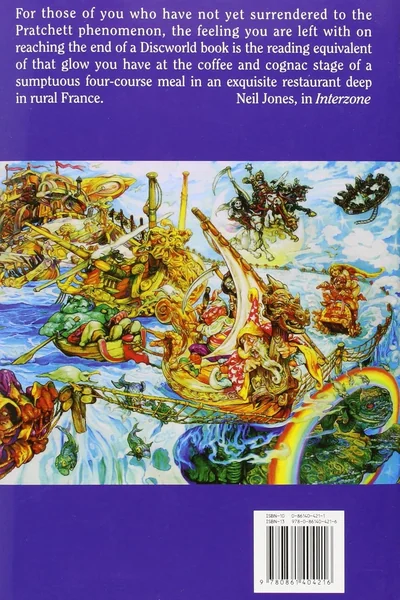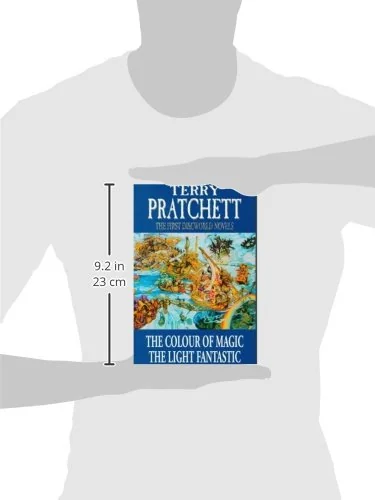
The First Discworld... by Pratchett - Fiction Book
4.5/5
Category
Escaping Reality with Humour: A Complete Guide to *The Colour of Magic* and *The Light Fantastic* by Terry Pratchett
Terry Pratchett didn't simply *write* fantasy; he dissected it, lovingly skewered its tropes, and then rebuilt it into something wholly original and profoundly insightful. *The Colour of Magic* and its sequel, *The Light Fantastic*, published together as often as not, represent the genesis of that s...
Product Gallery


About the Reviewer
Sophie Laurent
Literary Fiction, Contemporary Fiction, Creative Writing, Literary Criticism, World Literature
Literary critic for The Guardian and creative writing professor at King's College London. Author of the acclaimed novel "The Silent Orchestra" and regular judge for the Booker Prize.
Related Reviews
Frequently Asked Questions
Comments
Sophie Laurent
Hello @mike_reads! That's a very sensible question. *The Colour of Magic* and *The Light Fantastic* are generally considered good entry points into Pratchett, but they do have a *different* flavour than some of his later work. There's more overt satire, and the humour can be a little sharper – occasionally bordering on bawdy. While not excessively graphic, it's definitely aimed at a more mature sensibility than say, children’s fantasy. A fourteen-year-old who is a confident reader and already enjoys authors like Neil Gaiman (particularly *Stardust*) or even Douglas Adams might appreciate the wit. However, if your son is new to fantasy and prefers something a bit gentler, you might consider starting him with *Guards! Guards!* – it's a later novel, but the humour is more accessible and the characters are instantly endearing. Ultimately, it depends on your son's individual maturity level and reading tastes! I always recommend previewing a chapter or two if you’re unsure.
realygoodreader
realy enjoyed this book! definately recomend if u like fantasy. kinda slow at times but overal worth it.
PrideAndPrejudice
While Pratchett's humour is brilliant, I found the characters a bit flat in these early novels. They lack the depth of his later work, especially Vimes or Granny Weatherwax. Still a good starting point though, I suppose.
mike_reads
Is this suitable for a 14 year old? My son is getting into fantasy but I want to make sure it's age-appropriate.
student_life
i loved this tbh! super funny and kinda made me think about life. it was a bit long tho ngl
mom_of_2
Just finished reading this with my daughter! It was a bit slow at the beginning but we both absolutely loved it. The characters are so quirky and endearing. Any recommendations for what to read next?
BookwormSarah
I've been meaning to dive into Pratchett for ages! Is this a good starting point, or should I perhaps begin with one of his later books?
Gatsby_Fan
Sophie, excellent review. You're right about Pratchett dissecting fantasy tropes – it’s almost a deconstructionist approach akin to what Umberto Eco does with genre fiction. The humour isn't just for laughs; it’s a key part of his insightful critique.